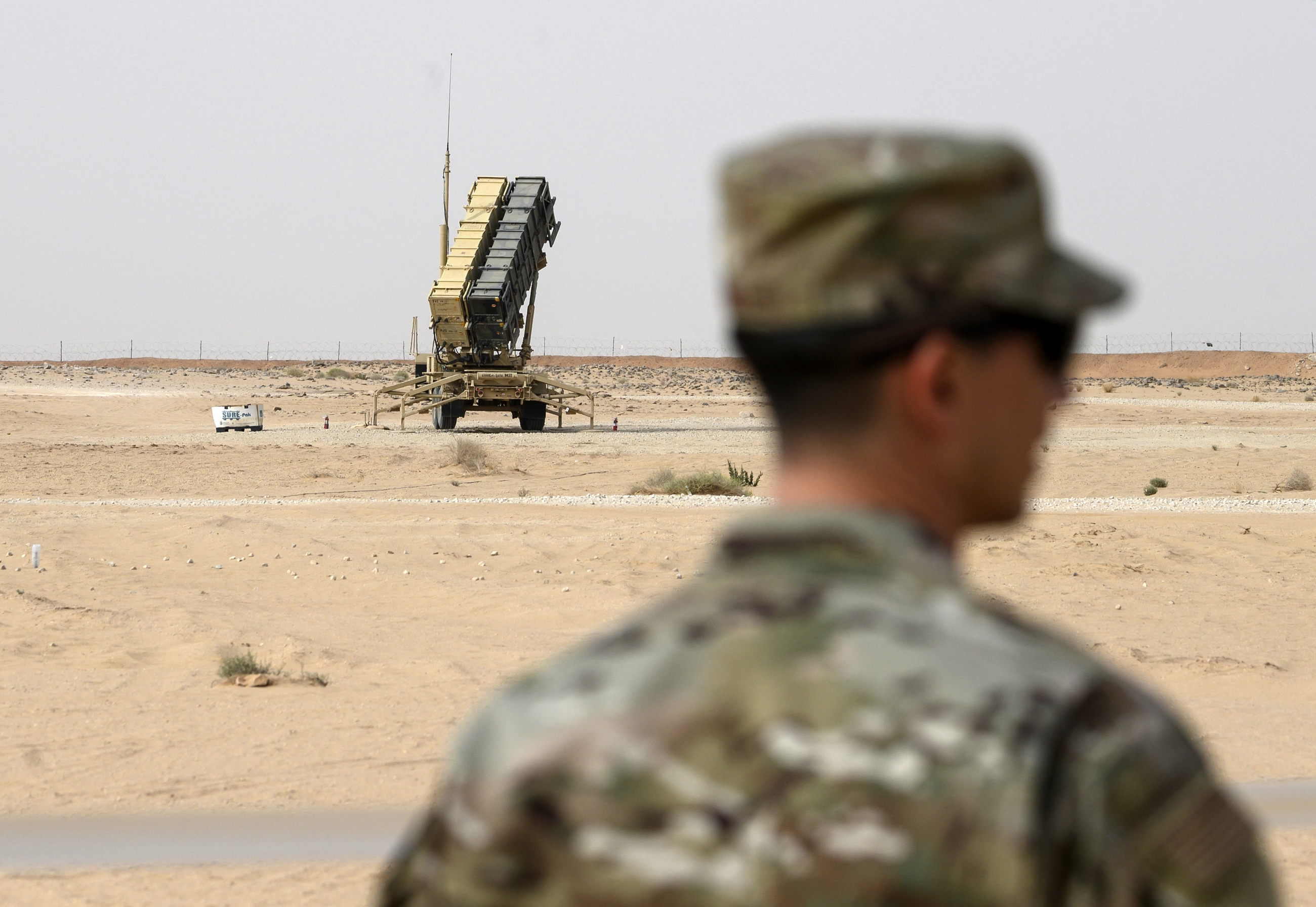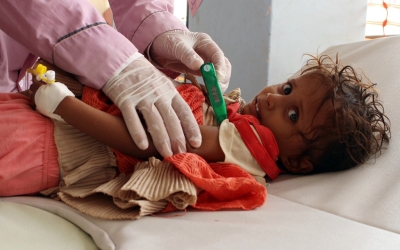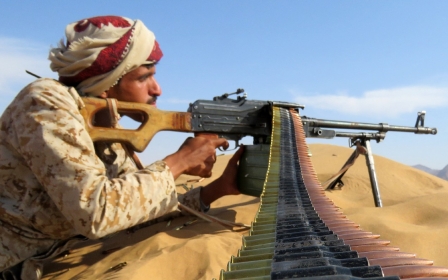Saudi Arabia 'pleads' for US Patriot missiles amid Houthi aerial barrage

Saudi Arabia has urgently requested hundreds more Patriot interceptors from the US, as well as from Gulf and European allies, as it battles against weekly ballistic missile and drone strikes launched by Yemen's Houthi rebels, according to a US newspaper.
Rebel Houthis have repeatedly launched cross border attacks on Saudi Arabia using drones and missiles since a Saudi-led coalition intervened in Yemen in March 2015 after the movement ousted the government from the capital Sanaa.
The coalition said on Tuesday that it bombed military targets in Sanaa after the Houthis launched ballistic missiles and armed drones into Saudi Arabia, including at Aramco oil facilities in Jeddah.
The coalition said late on Monday that one missile had been intercepted over the Saudi capital, where residents reported loud blasts.
Last week, Timothy Lenderking, the US special envoy for Yemen, said that the Houthis had deployed nearly 400 such attacks this year.
According to the Wall Street Journal (WSJ), although Saudi Arabia has in general successfully used its Patriot surface-to-air missile system to protect the kingdom, its supply of interceptors, the missiles used to shoot down airborne threats, is at worryingly low levels.
Saudi Arabia accuses Iran of supplying the Houthis with missiles, while UN investigators have said some of the weapons have technical characteristics similar to arms manufactured by Iran.
The Houthis say they manufacture their weapons themselves.
The WSJ said the interceptors cost about $1m each, while the Houthi drones, described as “$10,000 flying lawn mowers” were "small, simply made and relatively inexpensive".
'Working closely with the Saudis'
The Biden administration has given mixed messages over the war in Yemen.
In February, US President Joe Biden announced the end of US support for offensive operations by the Saudi-led coalition, in a major policy reversal from the previous administration that may alter the course of the conflict.
But his administration also approved the sale of 280 AIM-120C air-to-air missiles to Saudi Arabia last month, in a deal valued at potentially $650m, a State Department spokesperson told Middle East Eye.
The State Department said the sale was "fully consistent with the administration's pledge to lead with diplomacy to end the conflict in Yemen".
The air-to-air missiles ensure "Saudi Arabia has the means to defend itself from Iranian-backed Houthi air attacks", the spokesperson said.
A direct sale of the Patriot interceptors to Saudi Arabia is being considered by the State Department, two US officials told the WSJ.
“The United States is fully committed to supporting Saudi Arabia’s territorial defence, including against missiles and drones launched by Iranian-backed Houthi militants in Yemen,” a senior administration official told the newspaper in a statement.
“We are working closely with the Saudis and other partner countries to ensure there is no gap in coverage.”
The Yemen conflict is described by the United Nations as the worst humanitarian crisis in the world, with the majority of Yemenis dependent on aid and millions facing hunger.
A UN report published last month projected that the death toll from the war will reach 377,000 by the end of 2021, including those killed as a result of indirect and direct causes.
Middle East Eye propose une couverture et une analyse indépendantes et incomparables du Moyen-Orient, de l’Afrique du Nord et d’autres régions du monde. Pour en savoir plus sur la reprise de ce contenu et les frais qui s’appliquent, veuillez remplir ce formulaire [en anglais]. Pour en savoir plus sur MEE, cliquez ici [en anglais].






